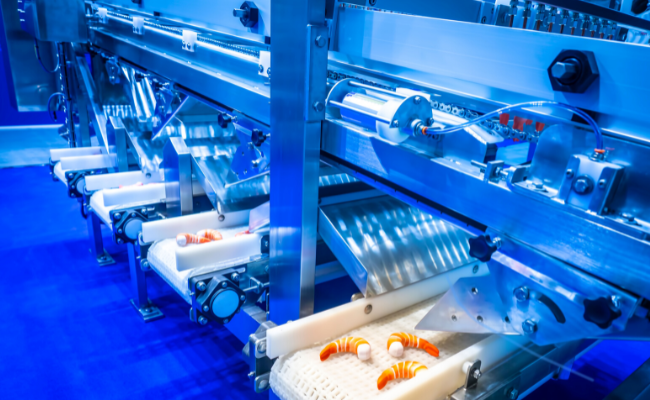How RS Industria helped Whitby Seafood land savings & achieve sustainability goals
2 min read

The Net Zero clock is ticking and moves to improve energy efficiency in UK manufacturing are gathering pace. According to recent statistics from Make UK, 92% of companies state Net Zero is a priority, while 68% of UK businesses[1] have made investments as part of projects to achieve a reduction in emissions.
For companies still reeling from the effects of soaring energy prices, there may be some resistance to implementing measures to drive down consumption, even though doing so is a sure-fire way to save costs while delivering on sustainability targets.
RS Industria is a simple, fast and affordable way to harness the power of data - one step at a time. As a modular platform used to digitally connect assets, RS Industria is already in use across a wide range of industries to drive down energy costs and emissions and optimise operational performance.
The end-to-end solution connects assets to a cloud reporting and management platform that gives customers easy access to a single overview of real-time information. The result? Visibility and insight into site, line and asset consumption and performance that can be leveraged to deliver rapid savings and reduce usage and waste.
For one leading food company, RS Industria presented the perfect opportunity to land big savings and contribute to corporate sustainability goals at the same time.
Driving Sustainability
Whitby Seafoods is the UK’s leading scampi producer, with its scampi eaten by more of the British public than any other type. The business sources its scampi from British waters, before preparing, breading and packing more than one million portions a week at its Whitby, North Yorkshire HQ.
The company is dedicated to achieving its sustainability goals, though plans to lower its manufacturing carbon footprint were being hindered by a lack of site-wide visibility of energy consumption. To help gain clarity and insight, Whitby Seafoods’ engineers enlisted peers at RS Industria.
RS Industria engineers worked with the customer to identify a total of 49 energy-intensive assets that could be connected to real-time energy monitoring, including machines in the site’s cold store, and the packing and coating lines. In order to determine kWh and current, sub-metering was installed to show how much energy was being consumed and where.
By gathering continuous, real-time data, the resulting insight has given Whitby Seafoods greater visibility of variations in individual asset consumption and enabled the customer to identify where usage can be reduced without affecting productivity or yield.
The data is visualised on a dashboard, presenting a single overview of how much energy is being consumed alongside insight into usage variations and trends. The result? The ability to make data-informed decisions on how and where to optimise processes and eliminate waste, as well as a tool to showcase the effectiveness of the sustainability programme.
Reeling in Energy Savings
By giving Whitby’s engineers real-time granular data, the customer has been able to make immediate changes to improve the performance of energy-intensive assets and operational processes. The time to value has been rapid, with RS Industria realising more than £2,000 of savings in just weeks.
Natalie Wilmott, RS Industria Customer Success Executive, explains: “Having a greater understanding of energy usage is hugely beneficial for customers looking to reduce energy costs and emissions. Depending on the level of metering available and the use of other data collected by RS Industria, it is possible for manufacturers to identify waste and variations in consumption and improve power factor management to reduce costs.”
Delivering insight into energy consumption is just one of a host of benefits that RS Industria offers, with customers able to leverage its modular nature to unlock further savings, enhance the performance and reliability of its operations, and boost uptime.
[1] https://www.makeuk.org/news-and-events/news/driving-forward-industrial-energy-efficiency-is-key-to-meeting-net-zero-targets

